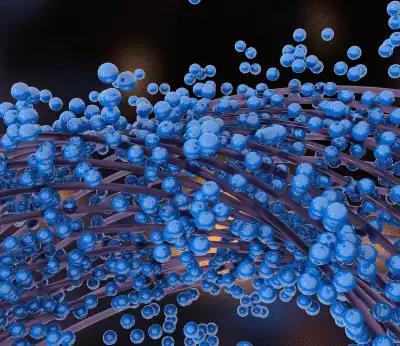KEY TAKEAWAYS
- The IMHOTEP phase II trial aimed to assess pembrolizumab efficacy and safety in localized dMMR/MSI tumors, regardless of their anatomical origin.
- The primary objective was to assess the pCR rate, while the secondary objectives were to assess the major pathological response, safety, clinical response rate, recurrence-free survival, and OS.
- The study found that short-course neoadjuvant pembrolizumab showed a low pCR rate but was comparable to previous reports. Pembrolizumab was well-tolerated.
Immune checkpoint inhibitors (ICI) have shown efficacy in advanced deficient mismatch repair/microsatellite instability (dMMR/MSI) tumors, and data is accumulating that they may also be effective in localized resectable stages, with a pathological complete response (pCR) rate of about 60%. Researchers aimed to assess pembrolizumab efficacy and safety in localized dMMR/MSI tumors, regardless of their anatomical origin.
The study included 120 patients (pts) with localized resectable dMMR/MSI tumors for curative surgery. Pembrolizumab was administered perioperatively, with the primary objective of evaluating the pCR rate. Secondary objectives included safety, clinical response, survival rates, and centralized pathological review. The interim analysis reports safety and pathologic response data for 70 pts.
The median age was 67.5 years (range 26-89), with 54.3% males and 42.0% having ECOG-PS 0. Among 70 pts, 54 underwent surgery, including 27/35 for colorectal (CRC), 16/21 for oesogastric (OGC), 4/5 for endometrial (EC), and 7/9 for other cancers (6 small intestine, 1 bile duct). Around 16 pts (22.9%) did not have surgery, mainly due to patient choice following complete clinical response (n=7), while only one missed surgery due to disease progression. Among the 54 operated pts, 31 received 1 neoadjuvant pembrolizumab dose, and 23 received 2 doses. The pCR rate was 38.9%, varying across cancer types (40.7% in CRC, 25.0% in OGC, 0.0% in EC, and 85.7% in OC). Grade 3-4 immune-related adverse events (AEs) affected 4 pts (5.7%) with events like transaminases increase, arthritis, acute kidney injury, and pneumonitis.
The study found that short-course neoadjuvant pembrolizumab showed a low pCR rate but was comparable to previous reports. Pembrolizumab was well-tolerated.
Source: https://ascopubs.org/doi/abs/10.1200/JCO.2023.41.16_suppl.2591
Clinical Trial: https://classic.clinicaltrials.gov/ct2/show/NCT04795661
Christelle De La Fouchardiere, Aziz Zaanan, Romain Cohen, Samuel Le Sourd, David Tougeron, Emilie Soularue, Olivier Dubreuil, Nicolas Willet, Emmanuelle Samalin, Guillaume Piessen, Vincent Hautefeuille, Marine Jary, Meher Ben Abdelghani, Ludovic Evesque, Philippe Rochigneux, Ellen Blanc, Aymeric De Montfort, Frédéric Bibeau, and Clélia Coutzac.
DOI: 10.1200/JCO.2023.41.16_suppl.2591 Journal of Clinical Oncology 41, no. 16_suppl (June 01, 2023) 2591-2591.



